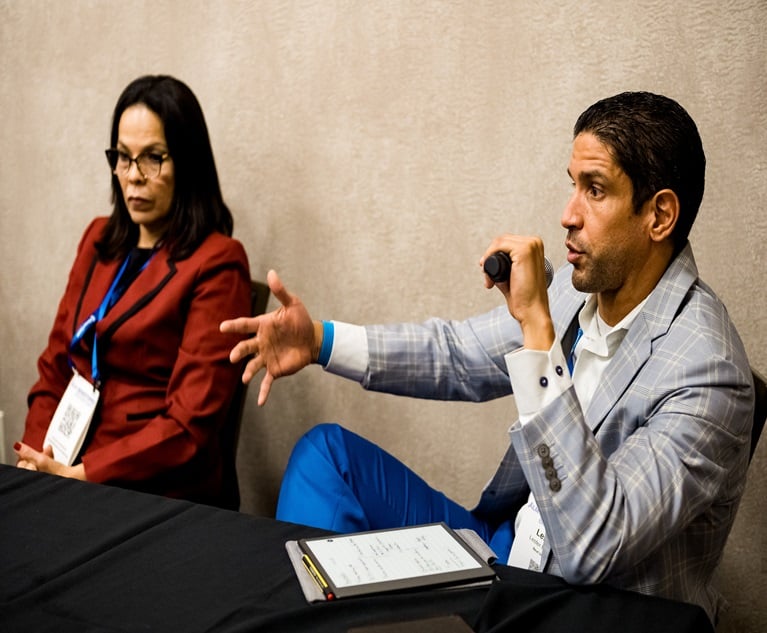Closing lines: They can be a little cheesy, sometimesunnecessary and most times dramatic. But they've also worked— on some occasions — to help close sales and gain clients. Of course,in reality, you're not “closing” a sale, but opening arelationship once that prospect signs up for a policy.
|And while there is no “best” way to close a sale,and no one closing line is a fit for each prospect, some of the following helped agentsturn the other individual in the room from prospect toclient.
|Take a look at some of the best closing lines out there and,please, let us know what sales techniques you feel work best.
|1. “Just one more thing”
This is a line made famous by the 1970s classic TV detective,Columbo. He often said this when he was done questioning suspects.Straight-faced, he would head for the door, seemingly ending theinterrogation. But he would pause just before exiting the room,turn, glare at the suspect and say, “Just one more thing.”
|Whatever followed that phrase would pack an incredible punch andleave the suspect deep in thought. The tables were turned, thesuspect is weakened and Columbo, at this point, usually gained theupper hand.
|Be Columbo.
|When prospects are being sold to, they naturally have theirguard up. When they feel the sales process is coming to a close andthey are no longer being “sold to,” they let their guard down. Thisis when the agent or advisor should say the most powerful thing inhis or her arsenal of lines. “Just one more thing … your familydepends on you.”
|See also: 4 sales pitches every insurance agent should know
|2. “Level with me”
To some, this phrase may seem a bit too aggressive. To others,maybe it's not aggressive enough. Let's face it,you are selling protection and security toyour prospect and their family.
|This phrase, like the aforementioned line, should be usedtowards the end of your meeting. For example, as you approach theend of the selling process and the customer says he wants to thinkabout it, ask him to get to the point: “Level with me. Have Ifailed to show you the value that you will receive from yourinvestment?” Then be quiet.
|Inevitably, the prospect will see thatyou are selling him something of value.You are selling him protection.You are selling him something his familyneeds.
|See also: 4 challenges you must overcome in insurance sales
|3. “You can put a price on anything, except a good night'ssleep”
Sure, sure, it's one of the more cheesy closing lines inexistence, but this saying is true. Insurance agents are sellingproducts that allow for their clients to have peace of mind. And,as we know, peace of mind usually aids in a good night'ssleep.
|You, as an agent or advisor, are selling client's a good night'ssleep. Not one person you meet should be able to tell you thatthere's no way they would be able to rest better, knowing theirfamily and property are protected. If they are, infact, able to tell you this, then maybe that's not to type ofclient you want.
|Image: Like a frozen waterfall, a wall of ice more than40-feet-high stretches down to the high-tide line on Otter Cliffsoverlooking the Atlantic Ocean, in this time-exposure madeThursday, March 6, 2014, at Acadia National Park in Maine. (APPhoto/Robert F. Bukaty)
|4. “Could this be a benefit to your family?”
This one is pretty self-explanatory. A prospect's answer to thisshould always be “yes” because insuring your home or car orproperty is the necessary and responsible thing to do. This isdifficult to argue. And with that answer, they've pretty much solda policy to themselves.
|Just ask the question: “Could a check for $500,000 be of use ifa fire harmed your house?”
|5. How much would you be willing to spend to make sure yourfamily is taken care of?
This question could elicit a range of responses, but if aprospect gives a specific dollar amount, it often winds up beingmuch less than the price of, say, a monthly premium on an earthquake policy.
|The point of this line is to refute the widespread assumptionthat insurance is too expensive for the average American household.Indeed, people are usually shocked when they learn how affordableit actually is.
|This line, like many of the above, could be used at any timeduring a meeting with a prospect. But it may work best if saveduntil the end of a pitch going nowhere. Before leaving, ask, “Howmuch would you be willing to spend per month on an [insert dollaramount] earthquake policy?”
|The prospect's possible response: “Right now I can only affordan additional [insert low dollar amount] in monthly expenses.”
|And your response: “That's great because we have [insert productname] that is only [insert amount lower or equal to prospectsnumber] per month and will provide your family with [amount of payout] in the event of disaster.”
|It's hard to say no to something affordable that can benefitthose that depend on that prospect the most.
Want to continue reading?
Become a Free PropertyCasualty360 Digital Reader
Your access to unlimited PropertyCasualty360 content isn’t changing.
Once you are an ALM digital member, you’ll receive:
- All PropertyCasualty360.com news coverage, best practices, and in-depth analysis.
- Educational webcasts, resources from industry leaders, and informative newsletters.
- Other award-winning websites including BenefitsPRO.com and ThinkAdvisor.com.
Already have an account? Sign In
© 2024 ALM Global, LLC, All Rights Reserved. Request academic re-use from www.copyright.com. All other uses, submit a request to [email protected]. For more information visit Asset & Logo Licensing.













